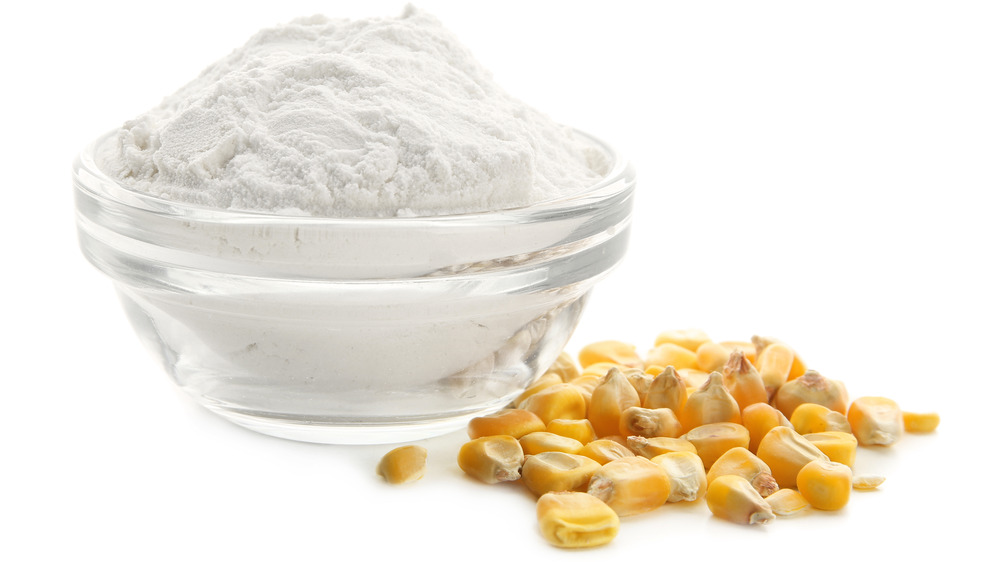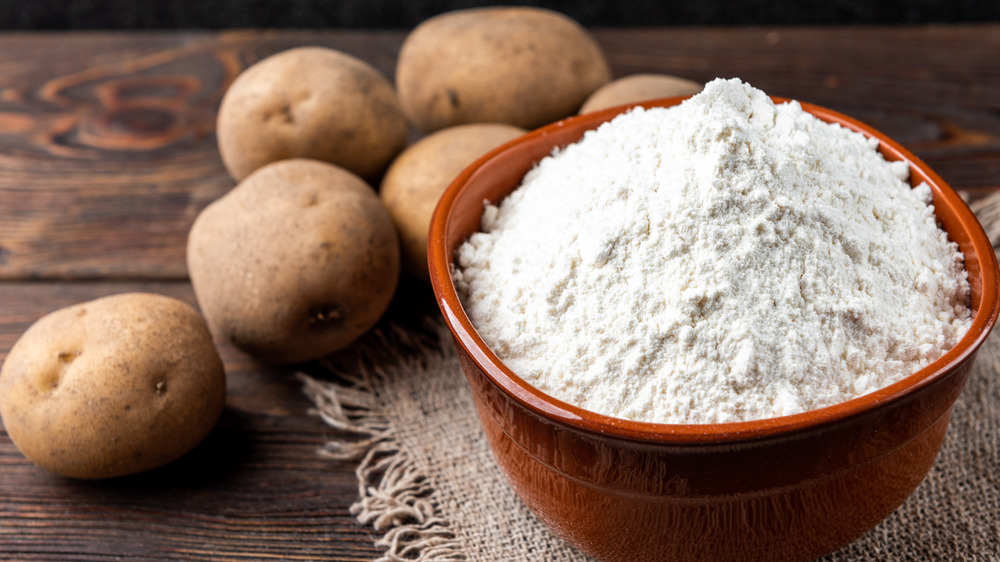Corn Starch Vs. Potato Starch: What's The Difference?
When you're cooking, there are times you may want to thicken a sauce, stew, or soup, or you need to create an airy texture for a dessert. Starches are a great ingredient and don't have any flavor or smells, which is crucial for not altering your dish. But figuring out which starch to use often depends what your preferences are, and more importantly, what you're making. So how do you decide between cornstarch, derived from corn, and potato starch, made from potatoes? There are a few things to consider.
In the article, Bob's Red Mill explains how cornstarch works: "When adding cornstarch to soups, stews and puddings, the molecules in it work to absorb water. When heated, those same molecules expand and soak up even more moisture in a recipe." But cornstarch has a downside — it doesn't do well with high temperatures. Knowing this, it's important when you do add cornstarch to your recipe, that you mix it with room temperature or cold water or another liquid to create a "slurry." It "can also help guarantee that the cornstarch is evenly distributed through the recipe," explains Bob's Red Mill.
Potato starch can handle higher temperatures
Even though potato starch and cornstarch work in a similar way when it comes to thickening a sauce, if you're cooking or baking at high temperatures, you'll definitely want to reach for the potato starch option, sometimes referred to as potato flour, because it can handle the heat (via Bob's Red Mill).
But it's important to add the starch when the ingredients aren't overly hot or it can affect the process. "If potato starch is added to a dish that is too hot, it can cause the molecules in the starch to break down and not absorb moisture correctly," according to Bob's Red Mill. This can cause the sauce or pie filling to be runny instead of thicken, which is what you're trying to avoid.
The other benefit of these starches is you can use them to bake as a way to fuse ingredients together, creating a lighter texture. Plus, both starches are gluten-free, so if you or anyone you're preparing food for has a gluten intolerance or celiac disease, either one will work. Although, as a previous Mashed piece noted, potato starch is considered a great baking staple.

